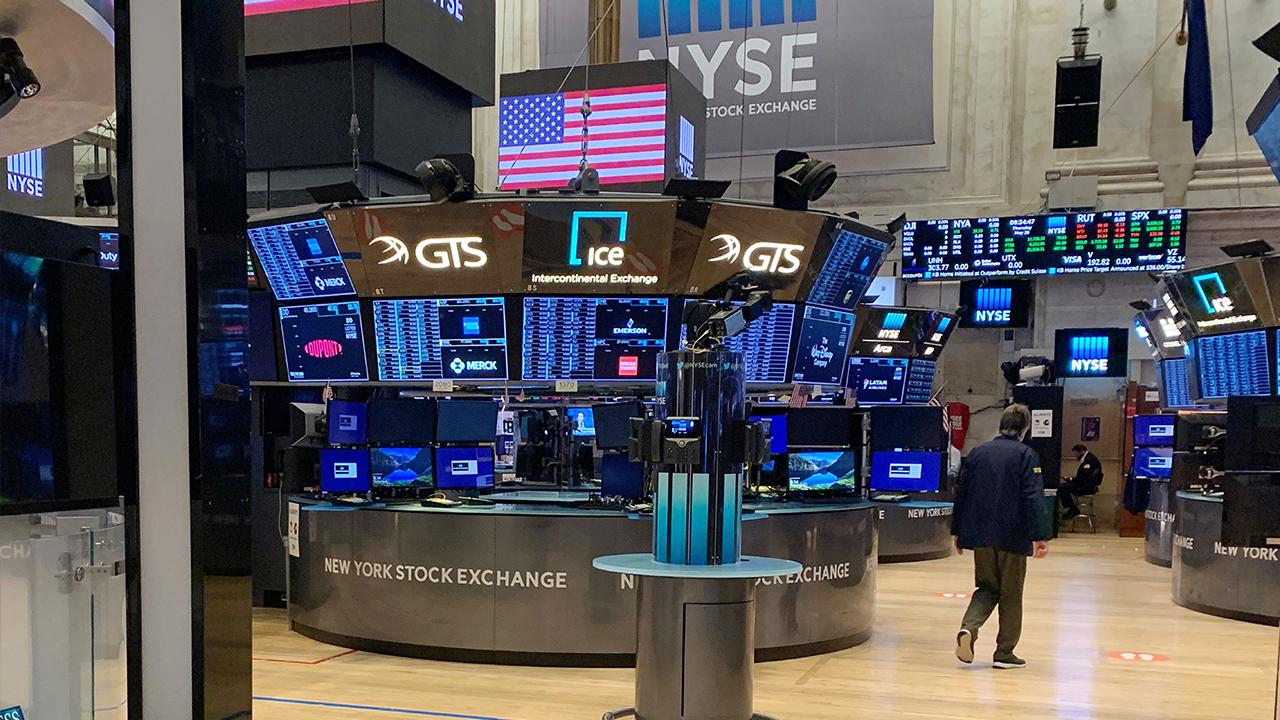Stocks ravaged by coronavirus benefiting from market 'mania'
'When Uncle Sam is digging that deep into his pocketbook, you might as well make the bets that nobody is going to fail'
U.S. listed-companies brought to their knees by the COVID-19 pandemic have been making a big comeback in financial markets, but their gains may not be built to last.
The resurgent stock prices reflect optimism about the speed and strength of the potential recovery rather than concrete performance data, and a second wave of the pandemic with further shutdowns could alter the calculus dramatically.
“The public searches out for destroyed stocks and buys them because they're low-priced and they've been conditioned, their fear of missing out,” Jim Bianco, president and macro strategist at Bianco Research, told FOX Business. “And the Fed's actions in late March and Trump's tweets have told them nothing goes bust.”
For those investors, Trump's vested interest in buoying the economy as he seeks a second term may be outweighing the impact of stay-at-home orders designed to slow the spread of COVID-19 that forced non-essential businesses to temporarily close their doors.
The result was the sharpest economic contraction of the postwar era, with the U.S. economy shrinking by 5 percent during three months through March as orders were implemented during the final weeks of the quarter.
Wall Street economists all predict the economy will shrink by at least 30 percent during the three months through June after more than 42 million Americans at least temporarily lost their jobs.
BIDEN TAX HIKES WOULD BE STOCK-MARKET HEADWIND, ANALYSTS SAY
The S&P 500, as it often does, offered an early indication of the economic carnage, plunging 34 percent from its February 19 record high before putting in a bottom on March 23.
The selloff helped force J.C. Penney, rental-car company Hertz and energy explorer Whiting Petroleum into Chapter 11 bankruptcy proceedings in the following weeks.
Often, shareholders of bankrupt companies get wiped out, but traders are betting that won’t be the case this time around as shares of all three businesses have soared.
Whiting Petroleum has climbed 251 percent through Tuesday since its March 31 filing while Hertz has spiked 47 percent since its May 22 filing, according to Dow Jones Market Data. J.C. Penney, which was trading for pennies on the dollar, was up 80 percent, the data showed.
| Ticker | Security | Last | Change | Change % |
|---|---|---|---|---|
| WLL | NO DATA AVAILABLE | - | - | - |
| HTZ | HERTZ GLOBAL | 5.29 | +0.35 | +7.09% |
| JCPNQ | NO DATA AVAILABLE | - | - | - |
Other companies, such as air carrier American Airlines, cruise operator Carnival Corp. and retailer Macy’s, which saw their shares dive into the single digits amid the March selloff, have rallied sharply from their year-to-date lows as investors started to price in the reopening of the economy.
Macy’s has gained 85 percent, American Airlines is up 86 percent and Carnival Corp. has soared 162 percent, Dow Jones Market Data showed.
| Ticker | Security | Last | Change | Change % |
|---|---|---|---|---|
| AAL | AMERICAN AIRLINES GROUP INC. | 15.24 | +1.08 | +7.63% |
| CCL | CARNIVAL CORP. | 33.98 | +2.54 | +8.08% |
| M | MACY'S INC. | 22.70 | +1.18 | +5.48% |
”What's been going on is a good old-fashioned retail stock market mania, which I believe is larger than it was in 2000 at the tech peak,” Bianco said. The Nasdaq soared 88 percent in the nearly five months leading up to its March 2000 apex.
The index gave up all of those gains over the remainder of that year before ultimately bottoming in October 2002 at a level 78 percent below its top.
Investors have been conditioned since the 2009 financial-crisis bottom to believe there is “no alternative to stocks,” he said, adding that this mania has been driven by brokers last fall cutting rates to zero, lockdowns, sports gamblers with no events to bet on turning to investing and stimulus checks.
David Rosenberg, chief economist and strategist at Toronto-based Rosenberg Research, agreed, pointing to the unprecedented fiscal and monetary stimulus enacted to support the economy.
The $3 trillion annualized transfer of income from the government sector to the private sector allowed personal income to spike by 10 percent in April, a month when 20 million Americans lost their jobs.
33% KEPT HOUSE PAYMENTS CURRENT AFTER WINNING CORONAVIRUS REPRIEVE
“When Uncle Sam is digging that deep into his pocketbook, you might as well make the bets that nobody is going to fail,” Rosenberg said.
The 43 percent rally from the March low through Tuesday has lifted the S&P 500 to its October levels. The difference between then and now is that the benchmark index currently has a forward price multiple of almost 24 times earnings. In October, it was 17.
“At some point, price has to matter in any auction,” Rosenberg said. He expects “another serious correction,” but believes the Fed won’t allow a retest of the March low.
Meanwhile, David Lefkowitz, head of American equities at UBS Global Wealth Management, said the market is “willing to ascribe higher valuation multiples to earnings” now that interest rates are at zero, compared with a range of 1.5 percent to 1.75 percent ahead of the COVID-19 pandemic.
Lefkowitz believes those higher valuations and a “mind-boggling” amount of stimulus from both the Fed and the federal government, which he thinks could reach $10 trillion, or half of GDP, by the end of next year, will lift the S&P 500 to 3,300 by mid-2021.
CLICK HERE TO READ MORE ON FOX BUSINESS
While Bianco says this isn’t a “traditional market,” he thinks stocks are headed higher in the near-term. “I don't know when it's going to end,” he said.




















